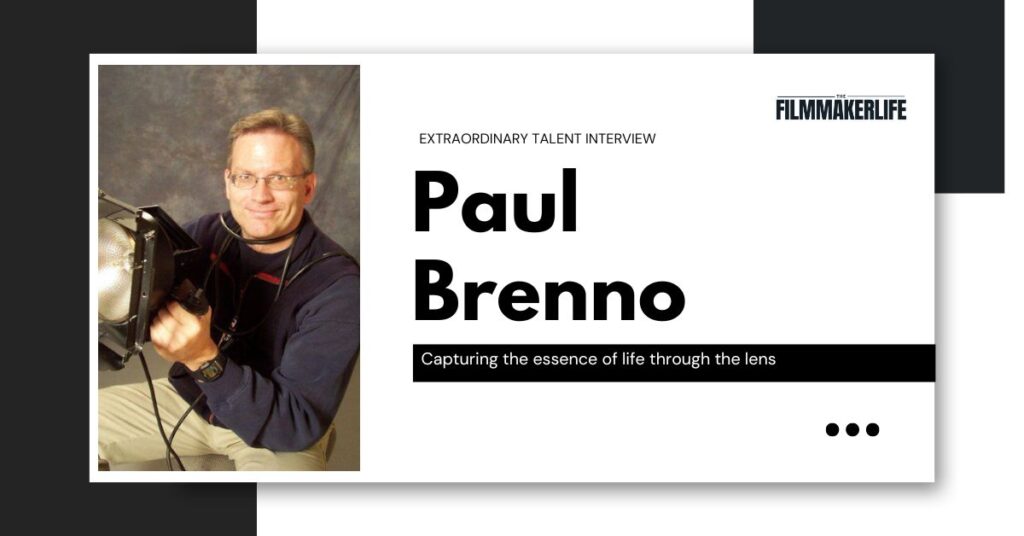
Paul Brenno’s path to cinematography began in Minot, North Dakota, where he was raised with a deep love for storytelling and a passion for photography. Influenced by iconic films like “Superman The Movie” and drawn to the technical artistry of cinematography, Paul embarked on a journey that led him from the US Air Force to film school at Montana State University. Along the way, he encountered mentors like Ken Lamkin and Dean Semler, whose guidance fueled his aspirations. Despite facing setbacks, including a lifethreatening battle with COVID-19 Paul’s resilience and faith have propelled him forward, shaping his remarkable career as a filmmaker dedicated to capturing the essence of life through the lens.
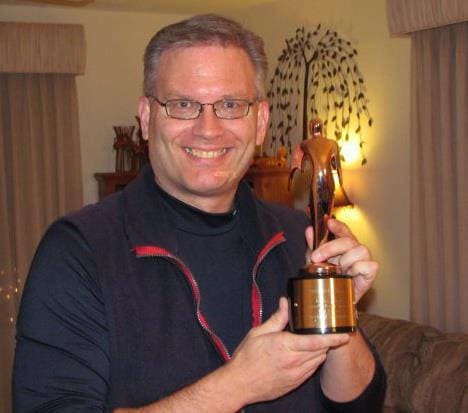
1. Can you share your early influences and how they shaped your love for cinematography?
My early influences with Cinematography/Filmmaking started through my early interest in Still Photography.
When I was around 9 or 10, I saw “Superman The Movie” (Photographed by Geoffrey Unsworth, BSC). That film put images into my mind, esp after seeing Star Wars a few years earlier. Those images, sounds and just the experience of movies made such in impression on me that at a young age, I wanted to pursue
Years later, then during my high school years, I was hooked on this new program called MTV. I remember being in awe of this new art form called “music videos”.
Growing up in the 80’s, TV shows were my main area of focus and influence, from Dukes of Hazzard, then Knight RIder to Riptide.
I remember buying my first camera, a Pentax K-1000, I was around 15. I began just shooting as much as I could, trying to master the camera, just loved shooting, but not really being any good at it. This was before HD, so buying a canister of 35mm film was sorta expensive, so I bought what I could, which wasn’t much.
During the beginning of my senior year of high school, by accident, I went into a store and found the American Cinematographer magazine.
I’d never heard of it before, but as soon as I began to read about Cinematographer/Directors of Photography, I knew this career field was for me. I was literally obsessed with Cinematography. I tried to study as much as I could about filmmaking, but there was very little to chose from, had no internet back then.
When I graduated high school, I attended one year of college, but only offered broadcasting to become a reporter, which was not my area or interest.
I only attended one year, then in 1989, I joined the Air Force, serving 4 years. When I was home on leave while serving in Italy, in January 1991, I saw “Dances with Wolves”, photographed by Dean Semler (ACS). Dances put a major mark on me for its direction by Kevin Costner and cinematography.
These films, plus “Passion of the Christ” (shot by Caleb Deschanel, ASC) made such inspiring images to me.
2. What led you to pursue a career in filmmaking despite the absence of film schools nearby?
Growing up, I was always fascinated with cameras, both still and video, especially film cameras. With the lack of film schools nearby, I looked into the military. Both my Dad and brother were in the Army, but Dad thought I’d be better in the Air Force. After high school I joined, not only to get the proper training, but fulfill the next steps by learning leadership and the benefits of film school with the GI Bill.
I applied to Brooks Institute of Photography, where I was accepted, I began to do research on film schools near me, if there were any(??).
Brooks was based in Santa Barbara, was too expensive for me, so in looking further, I chose to Montana State University in Bozeman. They had a great under-graduate degree in Film, so I was off, transferring from my home college of Minot State University, where I studied Broadcasting. I spent two years at MSU Film, studying all disciplines, which was amazing.
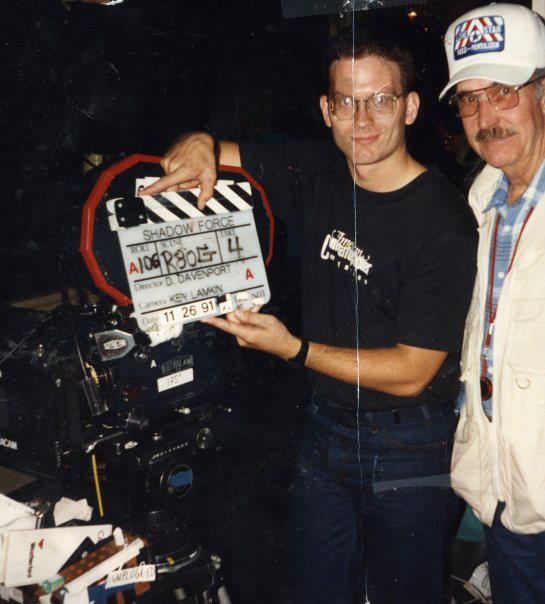
3. Could you elaborate on the pivotal moments in your journey, such as meeting Ken Lamkin and Dean Semler?
I had just finished my first overseas tour in Italy while in the Air Force, this was during the 1990-1991 Persian Gulf War.
I had just been on leave while at home when I saw “Dances with Wolves”, and fell in love with the Cinematography. I told myself if I ever had to chance to meet Kevin Costner or Dean Semler, of any crew or actor from Dances, I’d love to work with them on a project or just shake their hand, thank them for their inspiration
Upon my return to America, I was then stationed in San Antonio at Lackland AFB. I remember watching TV one morning, a local news station had 3 filmmakers they were interviewing, one of them was Ken Lamkin (ASC). Ken was known best for being a TV Sitcom/Movie Cinematographer. I told myself to reach out to Ken, just to see if I could meet him and talk about film. I wrote Ken a letter, introducing myself, and a week or two later, Ken called me directly, inviting me on the set to observe! I was so thrilled, before I knew it, I was on the set for just 3 days observing Ken, and helping his Camera Assistant. I just loved it, Ken was so gracious, and friendly. I kept calling him “sir”, out of deep respect, he just said “call me Kenny”. I’ll never forget my first time on a feature film, many many thanks to Ken, who passed in 2012
When I finally went to film school, during my senior year, I met Dean Semler, which was a true dream come true. Dean was in MT directing a film. I was a student at Montana State University in Bozeman, studying Cinematography. I wrote a letter to the film production office, and a few days later, one of his crew called me on a Friday, saying Dean got my letter and invited me on the set that night to meet him. I was just about to graduate, and that night, I went to the set, and Dean welcomed me. Again, he was so gracious, friendly, and accommodating and made me feel like I was a special guest! Watching the film crew was amazing, it was like watching a military operation in “controlled chaos”, as the grips and crew were busy and fast getting all the cameras and lighting set for a very short shot, but I was just amazed at how amazing they were!!!
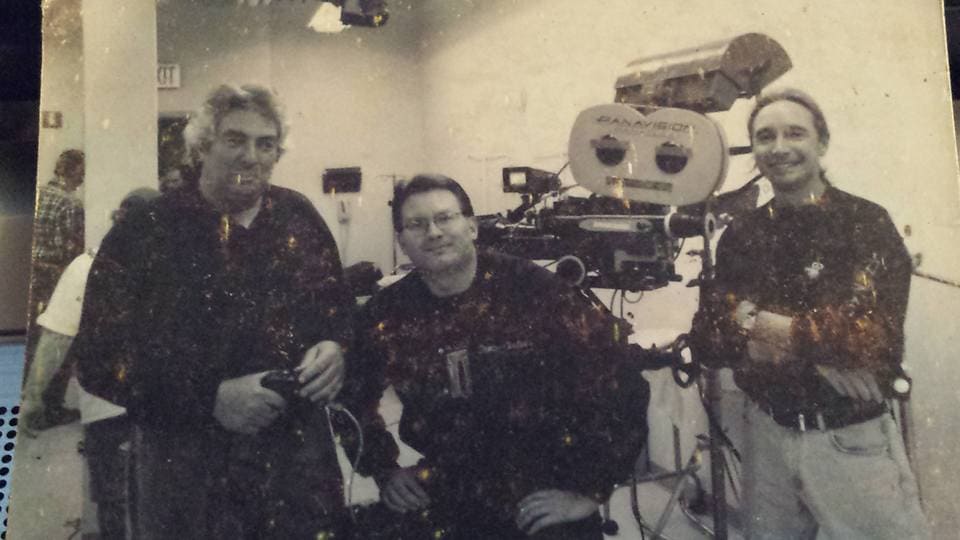
4. How did your experiences in the US Air Force contribute to your growth as a filmmaker?
My military experience was so vital in teaching me discipline, teamwork, leadership and how to work with a diverse team members.
I learned about working fast but most importantly efficiently and about how to handle responsibility
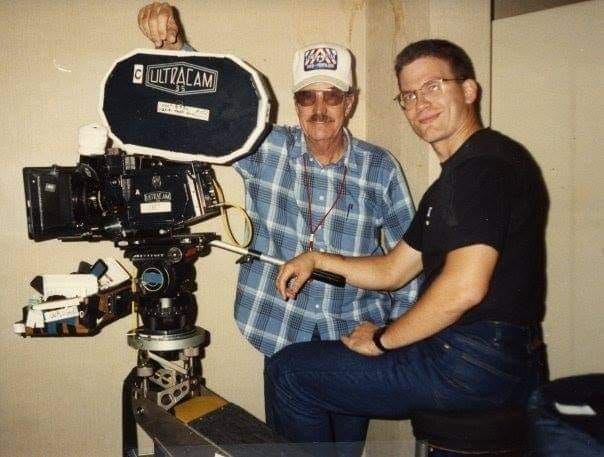
5. What inspired you to create documentaries like “Noble Inc” & “Covid 19 vs The Magic”?
In early 2019, I had applied to a job as Videographer/Editor for a company in the oil industry.
As oil was being drilled in North Dakota since 2008/2009, they were still going pretty strong. I saw an ad online and applied.
I was called in February 2019, asking me if I was still interested, which I was. I was told in the coming weeks the company hired a marketing team to come produce this film, but that didn’t work, so they came to me. I told them my idea, and they hired me a few weeks later. My goal was to produce a cinematic film, not just a video for them, using the real staff members, not use actors.
I recommended some gear, then traveled to four states, getting interviews with staff members and shooting various b-roll at various locations.
I completed the film just in time for them, it was the biggest project I’d ever done. The film went on to win many Cinematography Awards from LA, Tokyo, Cannes to London and a Directing Award from NY
In 2020, when covid 19, I remember my hometown’s business started to shut down too. I remember going into a restaurant my Dad loved, a truckstop called “Schatz”. This was one of Dad’s advertising clients for many years. When Dad retired, he still loved going there. I noticed, while getting a to-go order, as the Take Out Only mandate was in full force, I began looking around, seeing sections blocked off! I began to think that this looked like a disaster movie, when the idea later hit me, make a film about how covid affected businesses! So off I went, meeting various businesses that were clients of mine from a few years earlier. I wanted to highlight as many businesses as I could, without making the film too long. My goal was to make a love letter to my hometown, Minot ND.
The result, to show how resilient the people were in the face of a government control disaster compared to a natural disaster like a flood, blizzard to tornado.
The film went on to be honored with many awards, which was just citing on the cake!
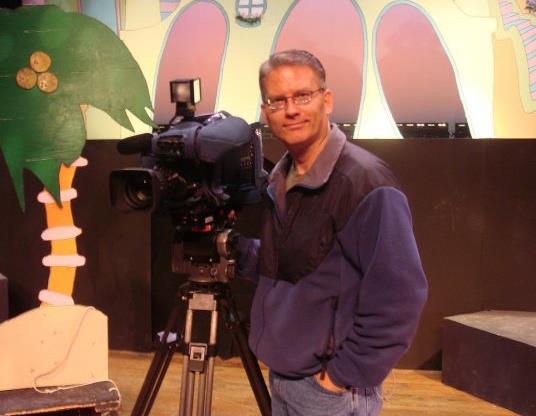
6. You’ve faced setbacks, including a life-threatening bout with COVID-19. How did you overcome these challenges?
After finishing “Covid 19 vs The Magic City”, I was still looking for work, when I got a call from a retail business in East TX.
They were seeking a Filmmaker to make a film about their business, so off I went to east TX. I made another film about them, then a week or two after completing the film, in August 2021, I was hit with a severe case of covid pneumonia. I had taken both vaccine shots prior, but after the second booster, my body got worse. I remember very little about it, but remember I was moving into an apt closer to my work, but after moving some items the day of my move, I sat down, due to feeling exhausted, and really never got up! I was so tired, had no energy, and had a severe cough.
I remember being very out of it, when I heard a knock at my door, and I could barely get up to answer, it was the HR person from my work.
Several days had passed, I had no idea, I had no sense of time(??). I couldn’t talk, so they called the Paramedics. I don’t remember much, but I do remember waking up in the ICU, with no memory of where I was, why I was there(??). The nurses came in to update me, telling me I had to be airlifted to the ER, as I was around 99% dead! They told me I was on life-support, and a miracle I was alive!
I spent 3 months in the hospital recovering, then several weeks of rehab to learn how to walk again. This was the most insane experience I had ever had in my life, especially in an area where I had no friends or family to come visit. My former boss kept in touch with me, asking about my progress, then in November 2021, once I was ready to be released, I was then fired from my job! I was shocked and wondered what was next?
What got me through this and life itself is my strong faith in Christ, my Lord and Savior!
7. Your journey has taken you across various locations. How do different environments influence your work?
I’ve been able to live in various parts of the US, which I really enjoyed. Serving in the military, you’re used to being stationed across the US and the world, so I got used to moving around, esp in the film/video industry, which is sort of expected. Living in Italy was such a thrill. I was hoping upon my graduating film school, to find a long-term full-time position, but that didn’t happen, plus due to some of the decisions I made, moved around a bit too much for several years, but it was great training to help me focus on finding my place where I wanted to be most of all, near family.
8. What advice do you have for aspiring filmmakers, especially those facing obstacles in their careers?
Advice I’d give to new or aspiring filmmakers(??) Never give up, always pursue your dreams, as they are dreams for a reason!
You will run into many obstacles and some much success early on, but always keep in mind that when you do receive criticism or when you do fail, it’s best to learn from it and keep moving forward. For me, the only way to be better is to fail!
9. Can you share a memorable experience from your recent project, “The Hearts that Foster Care”?
When I was lost my job after my release from the hospital due to covid in Nov 2021, I needed work. I had made contact via Facebook with a woman who ran a foster care mentor non-profit called “FUNDamentals for Foster Care”, founded by Cheryl Williams. I emailed her to introduce myself, we began to talk about a foster care film she wanted to do. I was excited, as she was based in Austin, so I went down to Austin to interview her and tell her story. The biggest challenge was finding foster care children or parents to interview and photograph, which we didn’t have.
We had a few good interviews, but mostly used stock photos and images. After principal photography was done, I went off to edit.
I finished around Christmas 2021, very proud of the work we both did, but looking back would have loved to get some more b-roll… Overall, we were honored with several awards, so I was happy with the results
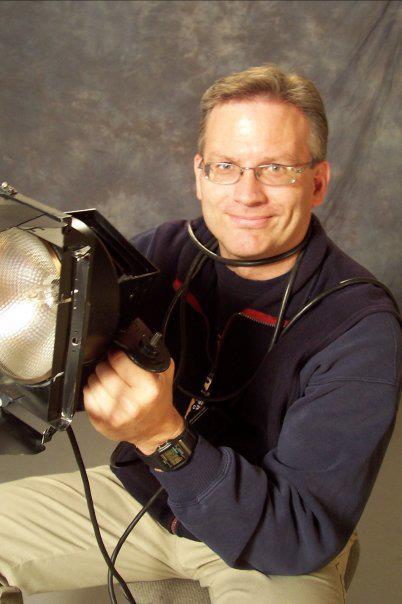
10. Lastly, what’s next for you in your filmmaking journey, and what legacy do you hope to leave behind?
What next? Due to family, I am hoping to move and find long-term work in Arizona, Phoenix or Tucson.
I’m in Oklahoma now, but was laid off a few months ago, which is always hard to go through. Having been to Phoenix several times for family reunions and with so many friends living there, I’m hoping to find a long-term position and move there, but open to other opportunities too.
Regarding legacy???, that seems to be a term for more major filmmakers, such as Directors, Actors to Cinematographers winning big awards, like the Oscars or Emmys.
I still feel like I’m not in that league yet, but striving for that level, which I hope to achieve. I hope people will love my work, and want to work with me on projects, especially those Directors and On-Screen Talent whose work I love and admire.
My legacy I hope for those who read this, is being very thankful for those who have influenced and inspired me, including Mom/Dad, my entire family, especially my brother Paris and his wife, to my dear friends/colleagues, including Dean Semler (ASC), Ken Lamkin (ASC), Kevin, Barb, Dawn, Samantha, Ira, Jeff, Haley, Nancy, Mark, DeNa, Rachel, The Entertainment Collaborators Facebook group, my alma mater Montana State Dept of Film, to so many more whom I haven’t mentioned, who encouraged and supported me along the way.
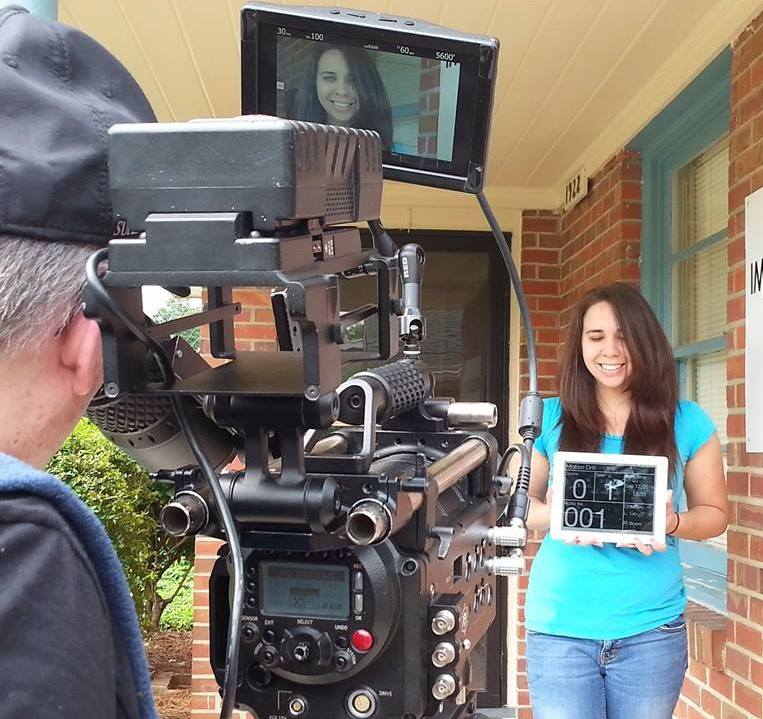

FilmmakerLife is proud to be a global team of dedicated professionals who are passionate about the world of filmmaking.